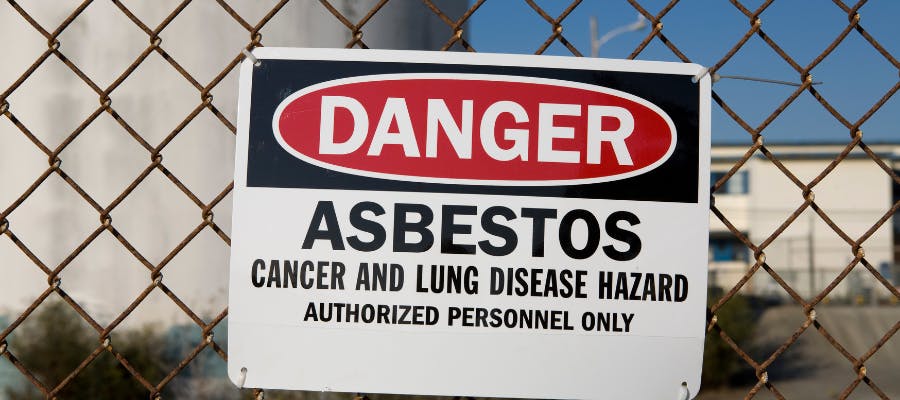First published on Monday, February 5, 2024
Last updated on Tuesday, February 6, 2024
Have you heard the latest news?
Welcome to HR Heartbeat where we give you a rundown of the week's top employment law stories. Stay on the pulse of current trends impacting your business. Plus, get up-to-the-minute commentary on all things HR and legal.
So, let's check out this week's headlines...
Wages without borders
As an employer who hires foreign workers under the Temporary Foreign Worker Program (TFWP), you must now carry out an annual review of your foreign workers’ wages.
This is to make sure that your foreign workers wages are in line with the prevailing wage rates for their role and region, and temporary foreign workers receive the same pay as Canadian workers for doing the same work.
If you’re wondering what the prevailing wage rate for your region is, it’s calculated as the median hourly wage earned by Canadian workers doing the same jobs, in the same geographical area.
Going forward, as an employer, you must now verify the prevailing wage every year around January 1st and confirm you aren’t paying your temporary foreign workers less than that wage.
Failure to meet these standards could not only result in penalties up to thousands of dollars, but you could also lose the right to hire any more foreign workers in the future.
Breathe easy B.C.
Contractors in British Columbia who work in asbestos management must now have a license to operate in the province. As an employer in this industry, in addition to having a valid license, you must also adequately train all your workers, and make sure they have a legitimate certificate.
In the same vein, contractors who transport and dispose of materials that may contain asbestos or perform building surveys for asbestos abatement are not off the hook.
These business owners must also apply for, and maintain, a valid license to continue conducting their business responsibly in B.C.
Our learning management system BrightLearn, contains comprehensive courses on asbestos management developed in line with industry standards.
Learning managers can easily assign courses to workers and ensure they complete them. Plus, certificates are awarded when each course is completed, so you can present them to WorkSafeBC and prove your workers are meeting their regulations.
Transforming terminations beyond two weeks
Starting this month, federally regulated employees now have increased termination notice entitlements.
Any employee who has worked with you for over a year is now entitled to more than just two weeks’ termination notice. This means you must review and update existing employee contracts and update your employment contract templates to contain an enforceable termination clause in line with Canada Labour Code (CLC) standards.
Your new contracts must reflect new termination notice periods, and be compliant with this new legislation, or you risk paying reasonable notice of termination when an employee is let go.
If such an employee files a claim against you, you may have to pay out 5 to 15 times more than you would with a clear termination clause, costing your business thousands of dollars.
Our extensive library of contracts, policies and guides, BrightBase, contains updated employment contracts with detailed termination clauses developed in line with industry standards. To help you stay on top of your HR documentation without adding more hours to your HR admin load.
Committing to safer workplaces
The Canadian government will soon implement laws, policies, and collective bargaining agreements that prohibit, prevent, and address violence and harassment at work in line with the International Labour Organization’s (ILO) Convention 190 (C190).
The global treaty is aimed at eliminating violence and harassment in the world of work and defines “violence and harassment” as a range of unacceptable behaviors and practices that result in, or are likely to result in, physical, psychological, sexual, or economic harm.
The treaty officially came into effect in Canada on January 30, 2024 and is applicable to workplaces in all provinces.
It aims to eliminate and prevent violence and harassment “linked with or arising out of work,” including public and private spaces in the workplace. Such as:
• Places where the worker is paid • Where workers rest or take their meal breaks • Sanitary or changing facilities • Work-related trips • Work communications • Employer-provided accommodation • When commuting to and from work
As an employer, it’s vital to make sure all your workers receive training to prevent workplace violence and harassment Thanks to the new treaty, Canadian judges are likely to apply stricter scrutiny during workplace investigations related to workplace sexual violence or harassment.
That's it for today! Come back next week for more HR news so you stay ahead of major employment law changes.
Have more questions on similar topics and more? BrightLightning has thousands of answers to all your HR and health & safety dilemmas.
Which businesses engaged in asbestos abatement must obtain a valid license to operative in B.C.?
WorkSafeBC announced on June 9, 2023, that all contractors engaged in asbestos abatement within the province must be officially licensed to operate in the province by January 1, 2024. Such contractors are required to hold a valid license for conducting asbestos abatement tasks and must guarantee that their workers are adequately trained and possess a legitimate certificate. Generally, an employer in the business of removing asbestos-containing material from buildings must apply and obtain a valid license to operate in B.C. This requirement is also applicable to employers in B.C. that transport or dispose of materials that may be asbestos containing or employers that perform building surveys for the purpose of asbestos abatement.
How much termination notice period are employees entitled in the federal jurisdiction?
Currently, the Canada Labour Code (CLC), requires employers to provide termination notice or pay in lieu of notice for terminations without cause equivalent to 2 weeks after 3 consecutive months of continuous employment. Effective February 1, 2024, federally regulated employees in the private sector will receive greater termination entitlements when terminated without cause. Under this new amendment, employers in the federal jurisdiction will have to provide a termination notice or pay in lieu of notice for termination without cause equivalent to two (2) weeks after three (3) consecutive months of continuous employment, at least three (3) weeks’ notice after three (3) consecutive years of continuous employment, and at least one (1) additional week per consecutive year of continuous employment. If you require a new offer of employment or employment contract templates or require assistance with reviewing existing employment contracts to ensure compliance with this legislative amendment, please contact the BrightHR 24-hour advice line.






